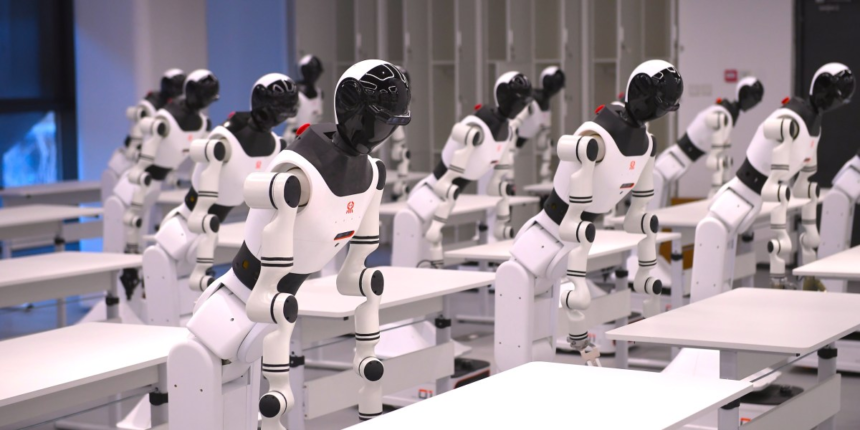“AI machines—in quite a literal sense—appear to be saving the U.S. economy right now,” George Saravelos of Deutsche Bank wrote to clients. “In the absence of tech-related spending, the U.S. would be close to, or in, recession this year.”
The market has been highly driven this year by the Magnificent 7 tech stocks, based on their spending on AI and the revenues they generate from AI capital expenditure from other companies.
However, there isn’t a consensus on Wall Street regarding AI’s longevity. Goldman Sachs took a more bullish view this morning. “We expect productivity gains from artificial intelligence (AI) to boost GDP significantly, by about 0.4% through the next few years and 1.5% cumulatively as adoption rises over the long run. Once it is widely adopted, AI is likely to allow workers and firms to produce more output for a given set of inputs, which will raise [total factor productivity] growth,” Manuel Abecasis and his colleagues told clients in a note seen by Fortune.
Whatever the number is, it is so massive that it’s boosting GDP, Deutsche’s Saravelos said: “It may not be an exaggeration to write that NVIDIA—the key supplier of capital goods for the AI investment cycle—is currently carrying the weight of U.S. economic growth. The bad news is that in order for the tech cycle to continue contributing to GDP growth, capital investment needs to remain parabolic. This is highly unlikely.”
He also noted that “growth is not coming from AI itself but from building the factories to generate AI capacity.”
AI spending is also distorting the stock market, Deutsche Bank’s Jim Reid argued in a separate note published this morning. “The S&P 500 is now up +13.81% so far this year, whereas the equal-weighted version is only up +7.65%. Or in other words, it’s been the Magnificent 7 driving the gains,” his team said.
“There is an extreme degree of concentration in the S&P 500, and equity investors are dramatically overexposed to AI,” he warned.
Here’s snapshot of the markets ahead of the opening bell in New York this morning:









